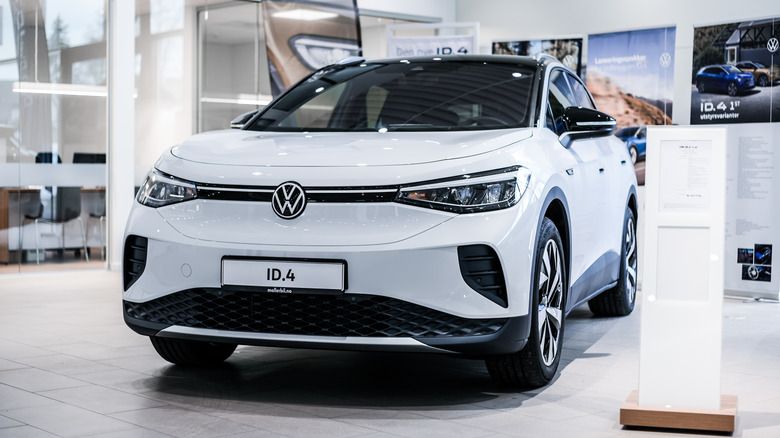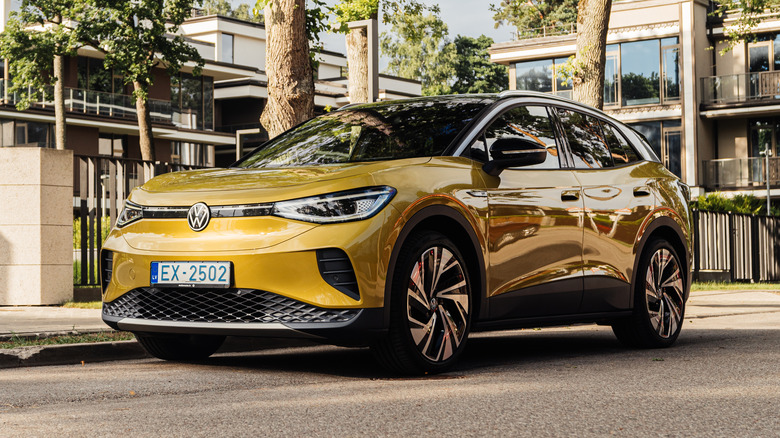Here's How Long A Volkswagen ID.4 Battery Will Actually Last
The ID.4 is pretty huge for Volkswagen. It's the brand's first serious attempt at an EV crossover at a price that's reasonably affordable.
While the Tesla Model S and GMC Hummer EV are flashy, fast, and possess some truly wild characteristics, they are hardly family haulers or vehicles for customers on a budget just looking for a convenient commuter a little bigger than a Nissan Leaf or a Chevy Bolt. In the United States, crossovers are the dominant vehicle on the road, so it makes perfect sense why VW would put so much effort into the ID.4.
When customers are thinking about making the switch to an electric vehicle, there are usually a few questions that come to mind — and almost all concern the battery. How much range does the car have? How long does it take to charge? Or how long will the battery last before it needs replacing? Those are all absolutely valid questions. Fortunately, the battery on the ID.4 and many other EVs have a fairly long lifespan before degrading into a state in which it is no longer usable.
Is the ID.4 ready for long-term use?
Right off the bat, Volkswagen provides an eight-year or 100,000-mile warranty on the battery. VW's warranty covers the battery until the battery degrades to about 70% charge capacity. That warranty falls in line with many other EVs that offer almost the same warranty across their respective brands. General Motors, for example, covers Chevy EVs for eight years or 100,000 miles, as well. Tesla covers base versions of the Model 3 for, you guessed it, eight years or 100,000 miles.
Warranties are great, but what happens after that? After all, a battery replacement is not cheap and an EV with a severely limited range almost defeats the purpose of the vehicle altogether. After all, it takes much longer to charge an EV and you won't always have access to a charging port. According to MotorBiscuit, the battery on the ID.4 should last between 300,000 to 400,000 miles before range is seriously hampered. Most traditional cars have major mechanical failures well before that mile mark.
That's definitely good news for anyone thinking of making the jump to EV ownership. Hopefully, automakers will be transparent and upfront about EVs in the future and assuage the valid fears that future customers may have.

